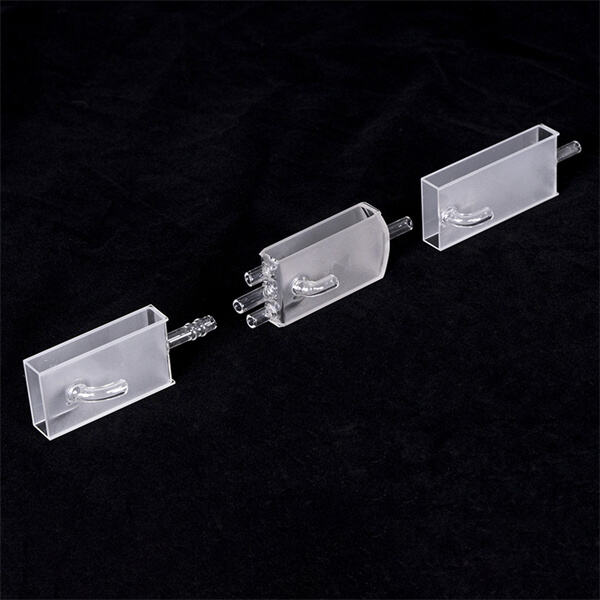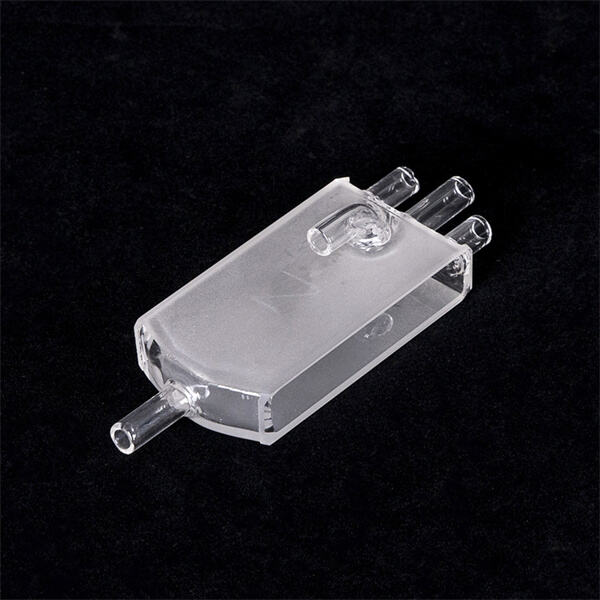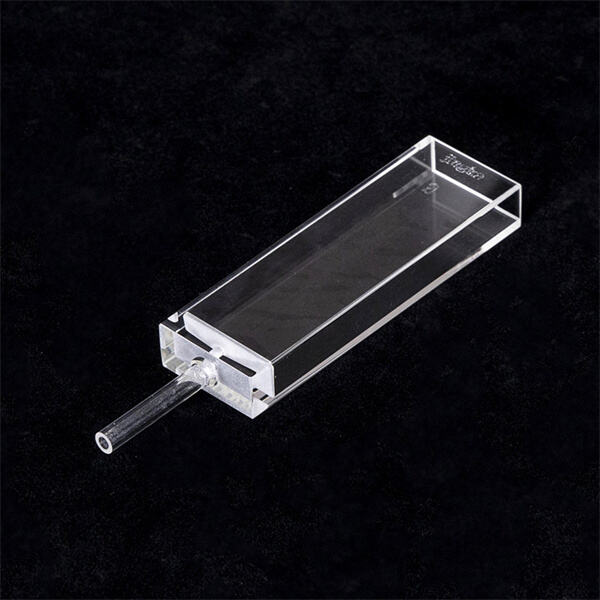If you use a spectrophotometer, you already understand the significance of pristine cuvettes. A cuvette is a small storage vessel, or container, made from glass or plastic that holds the liquid for testing. It then enters the spectrophotometer, where light is shined through it. The reagent and photons will not pass through properly when the cuvette is dirty and you will never get the correct readings of your outcomes.
Start with a Rinse
Before cleaning your cuvette, it's always best to wash it thoroughly with distilled water. This rinse removes any remaining residual liquid from the previous sample. To do this, fill the disposable cuvettes with distilled water with a pipette or a syringe, and then pouring it out. Rinsing first ensures you are beginning fresh and will not have any lingering samples mixed into your next readings.
Use the Proper Cleaning Solution
Prepare a cleaning solutionThat cleaners depend on the type of cuvette. Plastic cuvettes, for instance, can be cleaned with gentle soap or mild detergents. Glass cuvettes, conversely, are more durable and can withstand harsher cleaning agents, such as nitric acid. The instructions given by the manufacturer must be checked and followed at all times. This will make sure you are using the appropriate cleaning solution that is compatible with your specific round cuvettes material?
Be Gentle
A cuvette is a delicate piece of equipment that you need to handle carefully. When you clean them, be gentle and scrubs not too hard, and don't use rough things like steel wool that can scratch. You would also be well advised not to touch the inside of the Jinke Optical cuvette with your fingers. Your fingers have oils that can distort the readings and your experiments.

Use Pure Solvents
If you are going to use solvents to clean your cuvettes make sure they are pure without any contaminations. If there is some dirt/particles in the solvent, they will affect the readings you obtain on the spectrophotometer. Again, make sure not to use solvents that dissolve or damage the material of the fluorescence cuvettes itself. Using the wrong cleaner might cause major issues, ruining your Jinke Optical cuvette.

Keep Your Work Area Clean
Even as you are preparing to clean your plastic cuvettes, ensure your workstation is clean. Cuvettes are incredibly fragile; so any scratches or markings on them can impact their efficiency. Prevent this by covering your work area with a lint-free cloth, tissue, or paper towel. This will prevent your Jinke Optical cuvette from receiving dust and other particles while you clean it.

Stains
If the stains have been present for an extended period of time, they can be difficult to remove from the cuvette. To remove them, soak the cuvette in warm water and a few drops of mild detergent for a few hours. After soaking it, lightly scrub with a soft brush. If the stain still does not remove, you need to use stronger cleaner like nitric acid. As always, follow the manufacturer’s instructions and take safety precautions when using harsh chemicals.
Jinko Optics is committed to providing customers with high-quality products with high cost performance. By optimizing production processes and management processes and reducing production costs, the company can provide more favorable prices while ensuring the excellent performance of products in quality and function. In addition to the excellent quality of the products themselves, the company also pays special attention to after-sales service, providing timely technical support and professional solutions to ensure that problems encountered by customers during use are quickly resolved. This customer-oriented service concept enables Jinko Optics to stand out in the fiercely competitive market and win the trust and praise of a wide range of customers.
With more than 50 years of R&D and manufacturing experience, Jinko Optics has accumulated rich technical and practical knowledge in the field of spectral accessories. For a long time, focusing on the research and development of core products such as cuvettes, flow cells, optical components, and vapor cells has not only improved the company's technical position in the industry, but also enabled the company to quickly respond to various complex application requirements. The accumulation over the years has helped the company to continue to innovate and always be at the forefront of the industry.
Jinko Optics can provide fully customized solutions for the specific needs of different industries and customers. Whether it is drawings and samples provided by customers or personalized needs for special application scenarios, Jinko Optics can accurately design and produce optical components that meet the requirements. This flexible customization capability is particularly suitable for the precise needs of scientific research institutions, laboratories and specific industries. In addition, the company's rapid response to market changes and customer needs can ensure that customers always get the latest and most suitable technical support and products.
As the drafting unit of the national standard for cuvettes, Jinko Optics has very high standards for product quality. Every cuvette and optical component produced by the company follows the ISO9001:2016 standard, strictly controls every link in the production process, from the selection of raw materials to the factory inspection of finished products, to ensure that every product meets high quality requirements. In addition, it has 6 invention patents and 16 utility model patents, reflecting the company's continued investment in technological innovation and process optimization, so that the products not only have excellent performance, but also have unique market competitiveness.